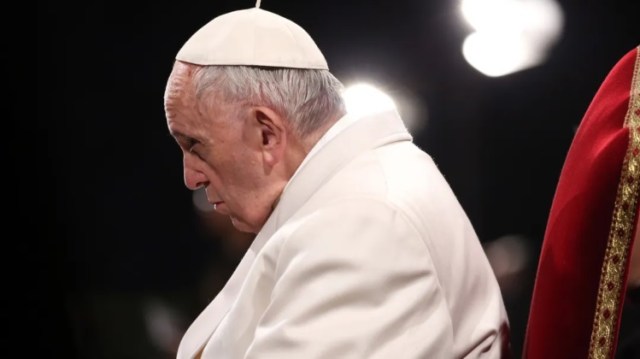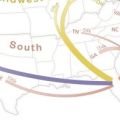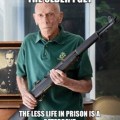The Bishop of Rome and earthly head of the Roman Catholic Church, Pope Francis, has passed away. He was 88 and died after a lengthy, lingering illness.
Many believe, however, Francis had long been dead and was represented in public by a double. And whose death has finally been allowed to be acknowledged. Which begs the question, ‘Why now?’
This from pjmedia.com.

Pope Francis was the first Jesuit pope and the first pope to have been born in South America (he was born into an Italian family in Argentina). As the Jesuit order and the Roman Catholic Church in South America both tend to lean to the left, so also did the twelve years of his papacy.
What was the conclave thinking when they elected him?
Pope Francis’ papacy was full of controversy, much of which he himself sparked with a comment that the Vatican then explained was his own personal opinion, and not the position of the Church. The Catholic Herald reported in September 2024 that Pope Francis had declared “all religions are a path to God.” He explained:
They are like different languages in order to arrive at God, but God is God for all. Since God is God for all, then we are all children of God. If you start to fight, ‘my religion is more important than yours, mine is true and yours isn’t’, where will that lead us? There’s only one God, and each of us has a language to arrive at God. Some are [Sikh], Muslim, Hindu, Christian, and they are different paths [to God].
With these words, Francis was contradicting Jesus’ statement:
I am the way, and the truth, and the life; no one comes to the Father but by me (John 14:6).
And Francis was contradicting the teaching of the Roman Catholic Church’s Second Vatican Council, which emphasized it was:
[T]he burden of the Church’s preaching to proclaim the cross of Christ as the sign of God’s all-embracing love and as the fountain from which every grace flows.
The Catholic Herald noted in making these remarks, the pope had set aside his prepared remarks and was speaking extemporaneously. And this begs the questions, ‘Is this an excuse or a reason?’ and ‘Was Francis not of his right mind?’
Often Francis’ official papal statements left many voicing quietly amongst themselves:
Is the Pope Catholic?
Argentine President Javier Milei derided Francis as a “Communist” and even as “the representative of the evil one on earth.”
In 2023, Pope Francis responded to a series of dubia (“doubts”) that Cardinals Walter Brandmüller and Raymond Leo Burke, along with the support of three other Cardinals, Juan Sandoval Íñiguez, Robert Sarah, and Joseph Zen Ze-kiun, had sent him the previous year, asking him to clarify his position on five issues where he had appeared to depart from the actual teaching of the Roman Catholic Church.
Vatican News identified these as:
- the interpretation of Divine Revelation,
- the blessing of same-sex unions,
- synodality as a constitutive dimension of the Church,
- the priestly ordination of women, and
- repentance as a necessary condition for sacramental absolution.
There is no parallel to this in modern times, and the act itself exemplified how much Francis was a very different kind of pope from the great majority of his predecessors. The most striking aspect of this incident was neither the questions nor the pope’s answers, but the fact that it had happened at all:
[T]hat it had been necessary to question the guardian and anchor
of the Roman Catholic faith over his own adherence to that faith.
Francis also followed a leftist line on most of the burning political issues of our day. In 2016, he declared that someone who built a border wall was “not a Christian.” In February 2025, he sent a letter to the U.S. bishops, excoriating Trump for securing America’s southern border. He repeatedly insisted that welcoming any and all migrants was a Christian duty, and rejected “any measure that tacitly or explicitly identifies the illegal status of some migrants with criminality.”
The pope worked hard also to build bridges with the international Islamic community, downplaying Islamic jihad terrorism, ignoring the rampant moslem persecution of Christians in the Middle East and Africa, and even obliquely justifying the 2015 murders of cartoonists of the French satirical magazine Charlie Hebdo who had lampooned the Islamic prophet Muhammad. Francis said:
[I]t is true that you must not react violently, but although we are good friends, if [an aide] says a curse word against my mother, he can expect a punch, it’s normal. You can’t make a toy out of the religions of others. These people provoke and then [something can happen]. In freedom of expression, there are limits.
Dangerously, this was, in essence, a submission to Islam’s blasphemy laws, which would, if followed, mean the end of free societies.
Before his final illness, Pope Francis had been planning to travel to Nicaea, the site of the first ecumenical council in the year 325, for the 1700th anniversary of this all-important council, and for joint Easter celebrations with the spiritual leader of the world’s Orthodox Christians, Ecumenical Patriarch Bartholomew of Constantinople. “His Holiness Pope Francis wishes for us to jointly celebrate this important anniversary,” Ecumenical Patriarch Bartholomew explained, and there had even been talk of the two Churches, which have been in schism with one another since 1054, agreeing to a common date for Easter, or even reuniting. But this was not to be.
What will the Roman Catholic Church do now? Will it continue to follow in the way of Pope Francis, or will it heed the call of millions to return to a more traditional approach to the faith? The world watches and waits.
God speed to right mindedness amongst members of the conclave and the return of the church to traditionalism and conservatism—religiously, socially, and politically.



![Unapologetic Jamaican Vacation Rental Owner Says She Will No Longer Allow Black Americans to Stay at Her Property: “They fight with each other, they’re disrespectful, they’re entitled” [VIDEO]](../../../../defconnews.com/wp-content/uploads/2023/05/Jamaican-Vacation-Rental-Owner_resize-120-120-ssl-1.jpeg)
